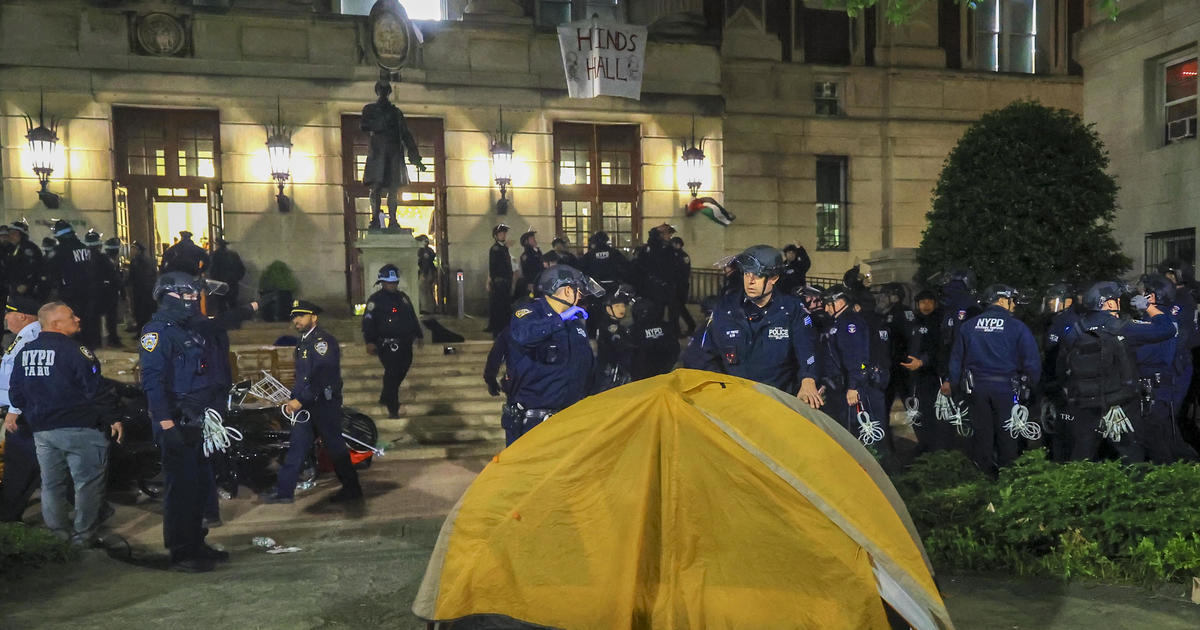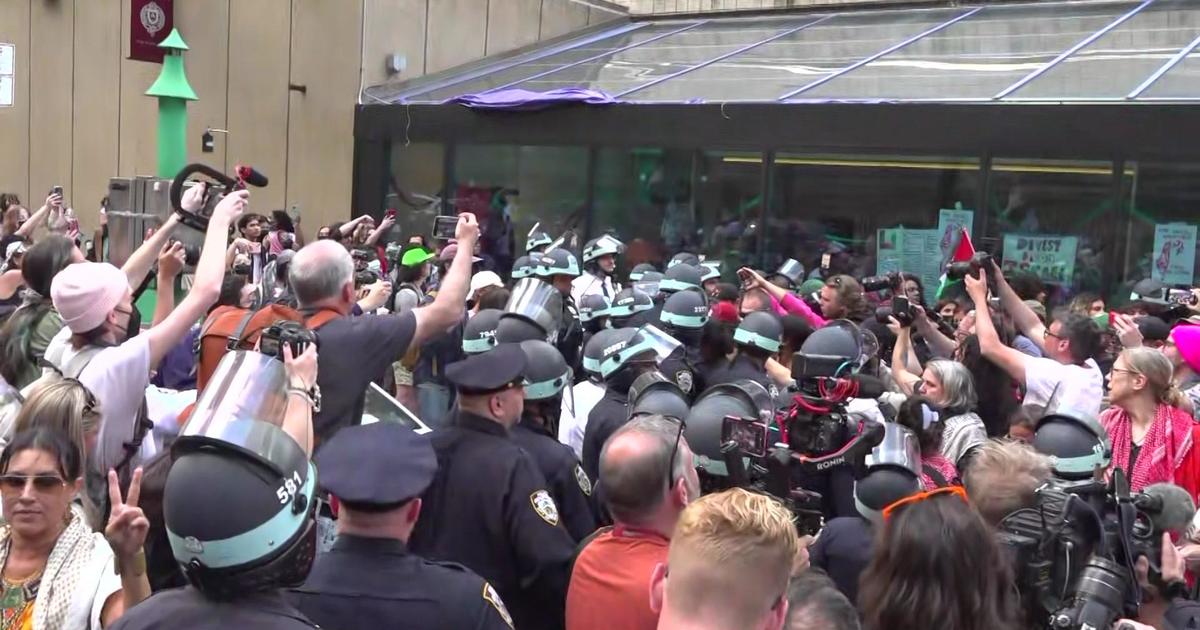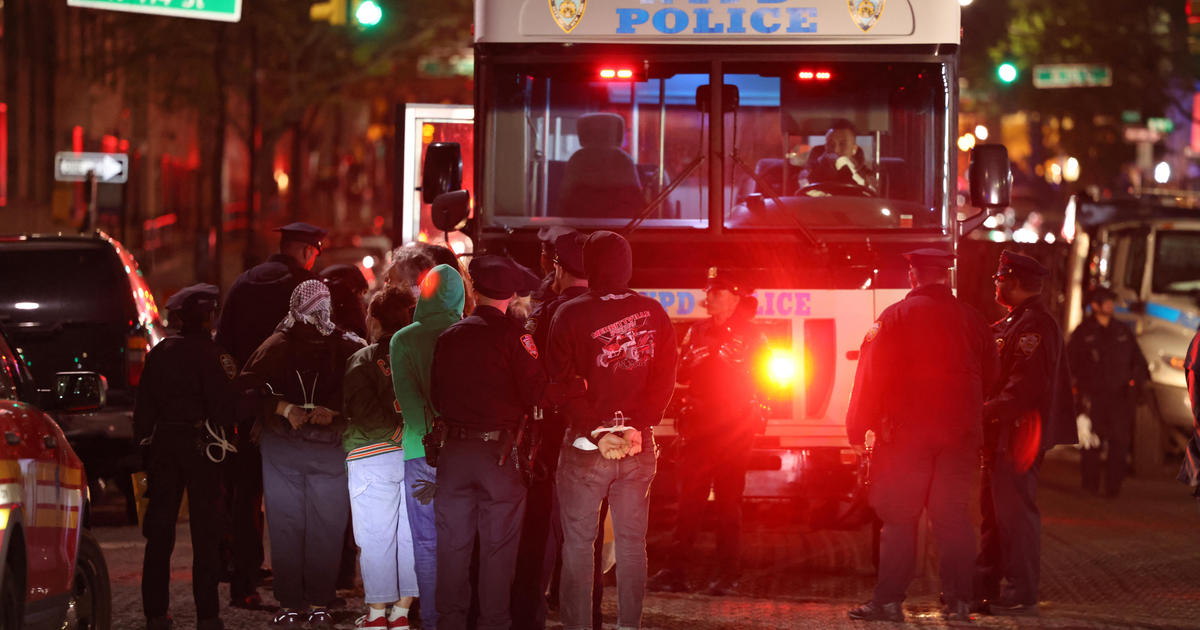Officials Announce Plan To Preserve Crumbling BQE For Another 20 Years
NEW YORK (CBSNewYork) -- Looking ahead to the future, the city unveiled a plan Wednesday to preserve a busy section of the Brooklyn-Queens Expressway.
It doesn't just involve repair, but rethinking what kind of traffic can use the roadway.
As CBS2's Maurice DuBois reported, the plan is focused on the cantilever section of the BQE, with hopes to extend its life for at least the next 20 years. The efforts can't come soon enough.
"There were DOT inspections that two spans of the triple cantilever were falling below safety standards and they could be at risk of collapse unless immediate repairs were done," a reporter asked.
MORE: Experts Propose Shrinking Brooklyn-Queens Expressway To Combat Traffic
"Those items, those areas you're referring to are the subject of repairs, some of which have already started," said DOT Commissioner Hank Gutman. "The immediate problems that were identified are being addressed now."
"Thankfully, we're at a moment in history where we're finally getting the support we need from Washington," said Mayor Bill de Blasio. "The BQE matters to the whole city."
The mayor detailed primary points of the plan, including preserving the current infrastructure. In part, this involves stopping water infiltration, to slow down corrosion. Lane markings will also be shifted starting Aug. 30 -- three lanes will go down to two wider lanes and a shoulder, allowing for improved entry lanes at Atlantic Avenue.
Immediate and ongoing maintenance is also a key point. Additionally, focus is being put on holding the trucking industry accountable.
"Get these big, oversized trucks out of our lives, starting with the BQE, but more and more. We're going to fight them all over the city," de Blasio said.
The mayor suggested alternatives to oversized freight trucks, including rail, water, and smaller vehicles or electric vehicles.
Gutman said there is no need for oversized trucks to be making local deliveries.
"We should create intermodal distribution centers in all five boroughs, where things can be off loaded into electric carts, and small electric vehicles for the last mile delivery," he said.
Rachel Weinberger is the senior transportation fellow at the Regional Plan Association. Two years ago she compiled a report on the BQE with suggestions on how to save the roadway from completely falling apart. In it, she mentioned transitioning to fewer lanes along with removing oversized vehicles, CBS2's Cory James reported.
"A semi is worth something like 10,000 car equivalents in terms of the wear and tear on the road and a lot of the trucks that are on are overweight. The thing about the lane reduction, a lot of traffic is Manhattan bound. It is bypassing the Battery Tunnel to take a free ride on the Manhattan or Brooklyn Bridge," Weinberger said.
Weinberger said by eliminating 25% of those drivers, there would be less traffic and no need for additional lanes. Work would begin by the end of the month.
Officials had previously been considering two options offered by an engineering and design firm. One would turn the BQE into a capped street-level highway with an extension of Brooklyn Bridge Park going over the road.
The second option would turn the expressway into a three-mile tunnel.
MORE: NYPD Begins Issuing Fines For Overweight Trucks On The BQE
The capped highway was estimated to cost $3.2 billion, while the tunnel could run up to $11 billion.
Back in 2018, the city pitched a controversial proposal that would have replaced the promenade with a temporary six-lane BQE bypass.
CBS2's Cory James contributed to this report.



